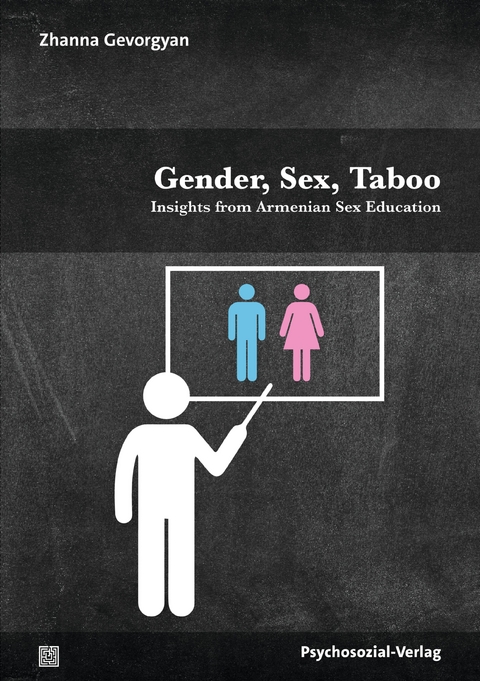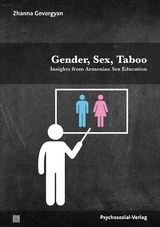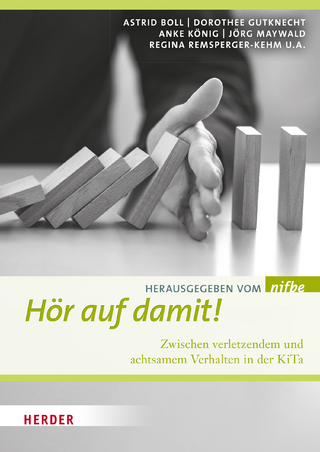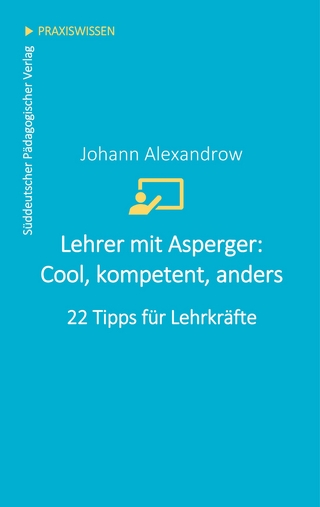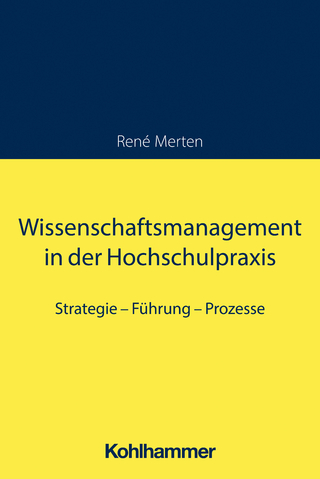Gender, Sex, Taboo
Psychosozial-Verlag
978-3-8379-3342-0 (ISBN)
In a world dominated by conventional gender norms, Gevorgyan promises a fresh take on gender-related discourses in a patriarchal society. Utilizing participant observation and the documentary method, she explores the discourse development surrounding sexuality and gender themes within mandatory sex education classes in Armenian public schools.
The author highlights the disparity between societal gender norms and the curriculum’s gender equality concepts. Unveiling the processes shaping gender knowledge during classroom discussions, she addresses the gap in analyzing Armenian sex education as well es the broader lack of investigation into gender topics within sex education curricula. Her book informs educators, researchers, and policymakers about the complexities of gender-sensitive sexuality education and encourages the development of more effective educational approaches.
Acknowledgment
Preface
Abbreviations
1 Introduction: Sexuality Education and Gender in Armenian Schools
1.1 Sexuality Education
1.2 “Healthy Lifestyle” Program in Armenian Schools
1.3 Conceptual Framework
1.4 Aim and Research Methods
1.5 Overview of the Structure
2 Theoretical Assumptions of the Construction and Doing of Gender
2.1 Theoretical Assumptions of the Study
2.2 Social Constructionism and Nature and Nurture of Gender
2.2.1 Central Characteristics
2.2.2 Nature and Nurture (Constructionism)
2.3 Poststructuralist Approach to Gender
2.4 Ethnomethodology, Doing Gender and Doing Classroom
2.4.1 Doing Gender
2.4.2 Doing Gender in Classroom
3 Gender (In)equality in Armenia
3.1 Historical Look
3.2 Religion and Gender
3.3 Family, Gender Roles and Violence
3.3.1 Domestic Violence: Legal Mechanisms and Social Norms
4 Sexuality Education and Healthy Lifestyle Program
4.1 Main Forms of Sexuality Education
4.2 School-based Sexuality Education and Teachers
4.3 Healthy Lifestyle – Armenian Approach to Sexuality Education
5 Methodology: Examining and Reconstructing Gender Knowledge in Healthy Lifestyle Classroom Discussions
5.1 Research Question
5.2 Research Paradigm
5.3 Stages of Data Collection
5.3.1 Interviews withHealthy Lifestyle Educators in 2016
5.3.2 Healthy Lifestyle Classroom Observations in 2018
5.3.3 Observation of Healthy Lifestyle Teacher’s Trainings and Informal Interviews
5.4 Data Analysis with the Documentary Method
5.4.1 Selection of Passages
5.4.2 Analytical Steps
5.4.3 Main Terms
5.5 Example of Analyzing Procedure
5.5.1 Formulating Interpretation
5.5.2 Reflecting Interpretation
5.6 Ethical Considerations
5.7 Reflexivity and Epistemological Positioning
6 Results: Reconstruction of Gendered Knowledge in Healthy Lifestyle Lessons
6.1 Unwanted Pregnancy, Responsible Behaviour, Abstinence
6.2 Gender Roles and Abuse of Power
6.2.1 Gender and Family
6.2.2 Societal Attitude, Family and Gender
6.2.3 Household Responsibilities and Gender
6.3 Sense-genetic Typification: Moralization, Cultural Essentialism and Gender Essentialism
7 Discussion: Moralization and Essentialization of Gender and Culture
7.1 Central Orientation Frameworks and Gender Construction
7.2 Gender in Schools and Healthy Lifestyle
7.3 Limitations of the Study
8 Conclusion:Healthy Lifestyle in the Armenian Schools and Construction of Gendered Knowledge
8.1 Gender Discourse in Armenian Schools: Summary
8.2 Healthy Lifestyle, Knowledge Contribution and Recommendations
Bibliography
Transcription Code according to Przyborski and Bohnsack
| Erscheinungsdatum | 31.05.2024 |
|---|---|
| Reihe/Serie | Angewandte Sexualwissenschaft |
| Mitarbeit |
Herausgeber (Serie): Maika Böhm, Harald Stumpe, Heinz-Jürgen Voß, Konrad Weller |
| Verlagsort | Gießen |
| Sprache | englisch |
| Maße | 148 x 210 mm |
| Gewicht | 479 g |
| Themenwelt | Sozialwissenschaften ► Pädagogik ► Bildungstheorie |
| Schlagworte | Armenia • Armenian schools • classroom discussions • documentary method • Doing Gender • Education • essentialism • Explicit Knowledge • Gender • Gender equality • healthy lifestyle • implicit knowledge • Inequality • moralization • Sex Education • Sexual Education |
| ISBN-10 | 3-8379-3342-3 / 3837933423 |
| ISBN-13 | 978-3-8379-3342-0 / 9783837933420 |
| Zustand | Neuware |
| Haben Sie eine Frage zum Produkt? |
aus dem Bereich
